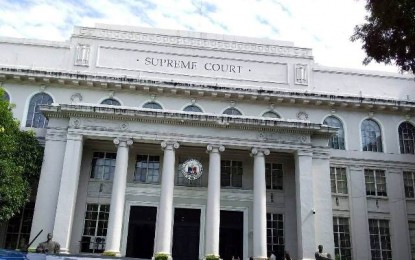
He noted that from March 17 to May 15, a total of 18,355 PDLs have been released.
Marquez added that more PDLs are set to be released in the next few days and other more cases, both criminal and civil, to be heard as many courts will reopen on skeletal workforce under the general community quarantine and additional courts will be authorized soon to conduct hearings of civil and criminal cases through videoconferencing.
PDLs released were either charged with crimes punishable under the Revised Penal Code or special penal laws, while a few, under local ordinances.
On March 16, Chief Justice Diosdado Peralta, in response to the Covid-19 outbreak ordered “all courts nationwide to drastically reduce operations” and maintain only the necessary skeletal staff to immediately act on urgent matters brought before them.
On March 20, Peralta ordered that all courts nationwide be physically closed to all court users who may reach them only through their hotlines and e-mail addresses, requiring judges and court personnel to work from home.
“We immediately gave 1,000 of our busiest courts the facility to conduct videoconferencing hearings, again focusing on the concerns of the PDLs. And in two weeks, almost 800 videoconferencing hearings of PDLs were conducted nationwide. And this is the result — more than 18,000 PDLs released.” Marquez said.
He said SC’s focus is on PDLs whose cases are still pending before the courts.
“It must be remembered that they have not yet been convicted. They are still innocent. And yet they are highly at risk of being infected by the deadly virus. It’s already like imposing the death penalty on them even before their guilt can be established beyond a reasonable doubt,” he added.
There are also several inmates from the facilities of the Bureau of Jail Management and Penology and provincial jails who were released either on a reduced bail or recognizance or after serving the minimum imposable penalty for the crime they were charged, Marquez said.
He added that they also monitored a few minors or CICL (children in conflict with the law) who were released to their parents during the ECQ period.